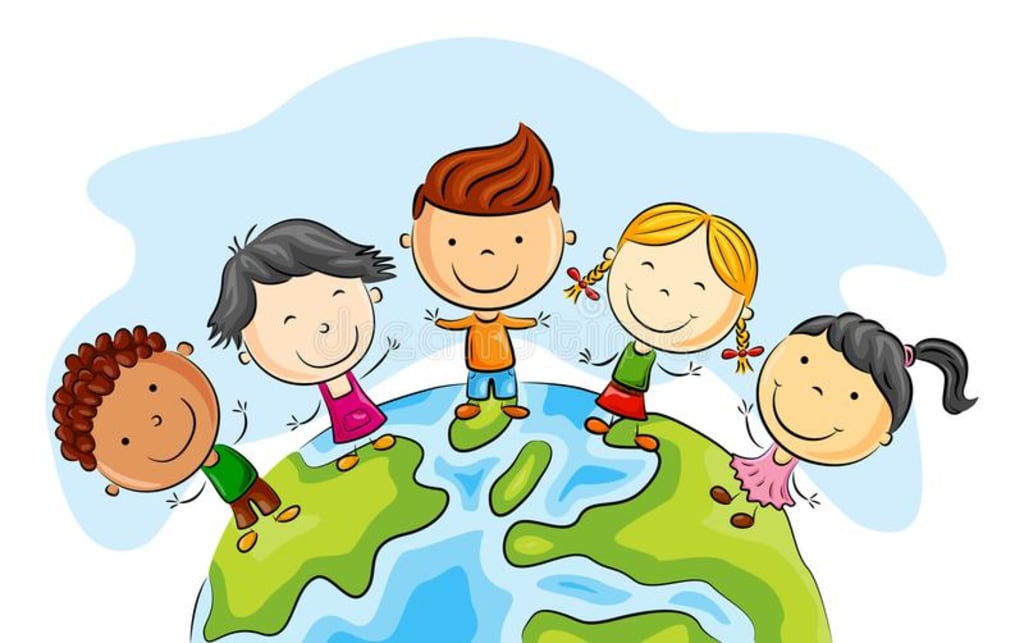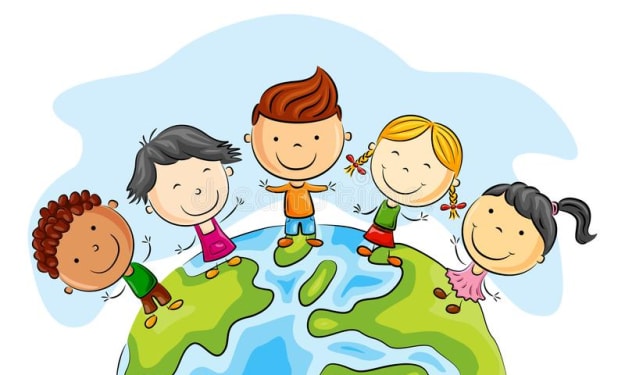The World once left behind | Part 2
Have you ever got “looped vibes” of afterlives and reincarnations - the bizarre feeling of calling to our mind our past lives?

2. Children’s capricious capabilities.
Above all, children do own the abilities we could hardly ever bear in mind.
By their very first months, infants would have already developed the ability to assess their surrounding people and themselves decide to whether allow someone to get close to them or not. In an experiment, 6-to-10-month-old were exposed to a puppet show, wherein one was going all out to climb a hill, whilst two others popped up to either aid or hinder him. Thereupon allowed to tap the ones they cherished, infants were pretty much in favour of the supportive puppet over the hindrance one. Howbeit not much of innate ability, such a behaviour can be interpreted as the very step that builds up a moral foundation during childhood.
A considerable number of other studies, in addition, asserted that children were cognizant of justice and humanity from an early age. An article of ours has also claimed: "children are born scrupulous". A piece of rather bad news, however, is that children are as much racist as adults.
In a research conducted by the University of Washington; 15-month-old white babies were exposed to how researchers variedly divided toys for an Asian and a white counterpart. In their turns to pick up who to play with, they were as much inclined to the researcher favouring their white counterparts. Which drew a conclusion that these children could, to all appearances, identify and prioritize those preferring (granting more toys) their “fellow humans” (whites).
We’ve all too often heard of children as superior when it comes to linguistic skills. What seems even more striking is their abilities to acquire mother tongues as fetuses, thus, fully cognizant of languages after a few hours “descending upon”.
Their self-identifying and defining social interaction ability has been given grounds for as early. Leveraging near-infrared spectroscopy technology on one-to-five-day-olds, researchers could spell out the corresponding brain socially interactive reactions to facial expressions and gestures. Another similar study sampled on older children still evidenced a 1-day-old infant’s spectacular skills. The result that older children could distinguish between different communication types as well as purported that their cognitive development could blossom, even by the earliest stages of life.
Even when the statistical probability is deemed a miserable nightmare, we’ve actually intuitively perceived it by our eighth month. As 11-month-olds, we’ve already self-identified fundamental physical phenomena, to illustrate, ball incapable of penetrating walls, or the gravity direction.
Given our incapability to oust dead tissues; wounds always leave scars, which might be miserably desperate to accidentally injured children. To all appearances, we’ve all too often purported that superhuman wound healing ability is pure fictional
Still, we’ve been as much falsified. A study figured out fetuses’ miraculous ability to self-recover from wounds without leaving any scar.
Adults have spearheaded the two world wars, grievous genocidal disasters, pollution and global warming - the crippling burdens children are shouldering sooner or later. But what have children ever accomplished?
Many were tugged at the hearts by the 15-year-old Anne Frank’s diary, wherein she narrated her juvenile, Nazi’s brutal cruelty and the concentration “graves”.
Insomuch as the 6-year-old Ruby Bridges' fierce resistance on school transfer did facilitate the anti-racism movements within the US, turning herself an enthusiastic civil rights activist. In all likelihood, Barack Obama must have owed her a thank.
By 2010, the seven-year-old Charlie Simpson cycled around London’s South Park and uploaded images of natural disasters online, in a high attempt to run a donation campaign, which aided Haitians recently rocked by an earthquake £150,000.
What about adults? They drive those children.
References:
Mottweiler, C. M., & Taylor, M. (2014). Elaborated role play and creativity in preschool-age children. Psychology of Aesthetics, Creativity, and the Arts, 8(3), 277–286. DOI:10.1037/a0036083
Kidd, E., Rogers, P., & Rogers, C. (2010). The Personality Correlates of Adults Who Had Imaginary Companions in Childhood. Psychological Reports, 107(1), 163–172. DOI:10.2466/02.04.10.pr0.107.4.163-172
About the Creator
Mush Boxey
Be who you are and say what you feel, because those who mind don't matter and those who matter don't mind.
I'm a writer!
Welcome to my life!






Comments
There are no comments for this story
Be the first to respond and start the conversation.